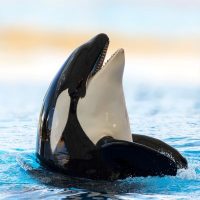DOL Cites SeaWorld After Trainer is Hurt By Killer Whale

On March 21st, 2025, the United States Department of Labor (DOL) announced that SeaWold—the theme park in Orlando—has been cited and fined after one of its trainers was hurt in an incident involving a killer whale. It is certainly not the first time the company has faced serious workplace safety questions. The Occupational Safety and Health Administration (OSHA) has proposed $16,550 in financial penalties. In this article, you will find a more comprehensive overview of the incident.
Trainer Hurt in Whale-Related Incident in SeaWorld
In September of 2024, a SeaWorld Orlando trainer was injured during a killer whale training exercise. The incident was formally investigated by federal regulators. A DOL workplace safety investigation found the trainer was not adequately protected from potential hazards, including:
- Animal bites;
- Blunt force impact;
- A risk of drowning.
Following the investigation, OSHA cited SeaWorld for a serious violation of the general duty clause and proposed a $16,550 fine. The company has 15 business days to comply, to meet with OSHA officials, or to formally contest the citation.
Regulatory Action Take Under OSHA’s General Duty Clause
There is no specific federal or state (Florida) workplace safety regulation in place for killer whale training. However, regulators still took enforcement action against the company under the “General Duty Clause.” The General Duty Clause—which is found in Section 5(a)(1) of the Occupational Safety and Health Act of 1970—serves as somewhat of a catch-all provision requiring employers to provide a workplace “free from recognized hazards that are causing or are likely to cause death or serious physical harm.” It is used when no specific OSHA standard applies to a particular hazard. To cite an employer under this clause, OSHA must prove four things:
- A safety hazard actually existed;
- The hazard is recognized either by the industry or employer;
- The hazard can cause serious harm or death;
- A feasible means exists to reduce or eliminate the hazard.
Here is a key point that employers and employees in Florida should understand: The clause empowers OSHA to hold employers accountable for known dangers, even in evolving or complex environments like animal training or new technologies. It places responsibility on employers to anticipate and mitigate risks—and goes far beyond merely following a set of prescriptive rules.
Serious Questions Raised About Workplace Safety at SeaWorld
SeaWorld’s workplace safety practices have come under scrutiny following multiple incidents involving trainer injuries, and even fatalities. SeaWorld has a long history of workplace safety controversies, particularly surrounding its orca (killer whale) programs. One of the most high-profile incidents occurred in 2010, when trainer Dawn Brancheau was killed by the orca Tilikum during a performance at SeaWorld Orlando.
Get Help From Our Florida Employment Lawyer Today
Employers have a responsibility to ensure that the workplace is reasonably safe for workers. If you have any specific questions or concerns about a workplace safety matter, please do not hesitate to contact an experienced Florida employment law for a confidential initial consultation.

